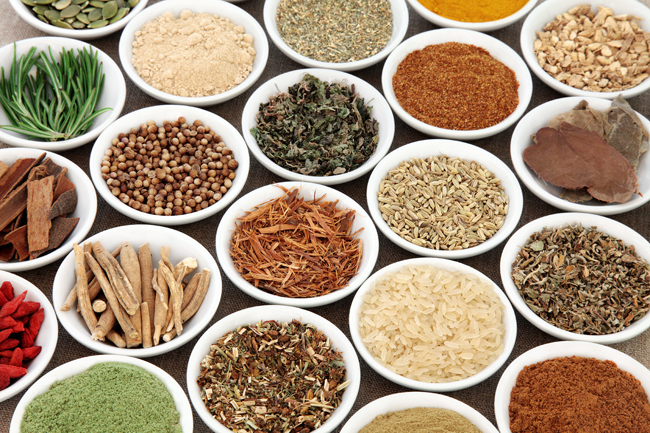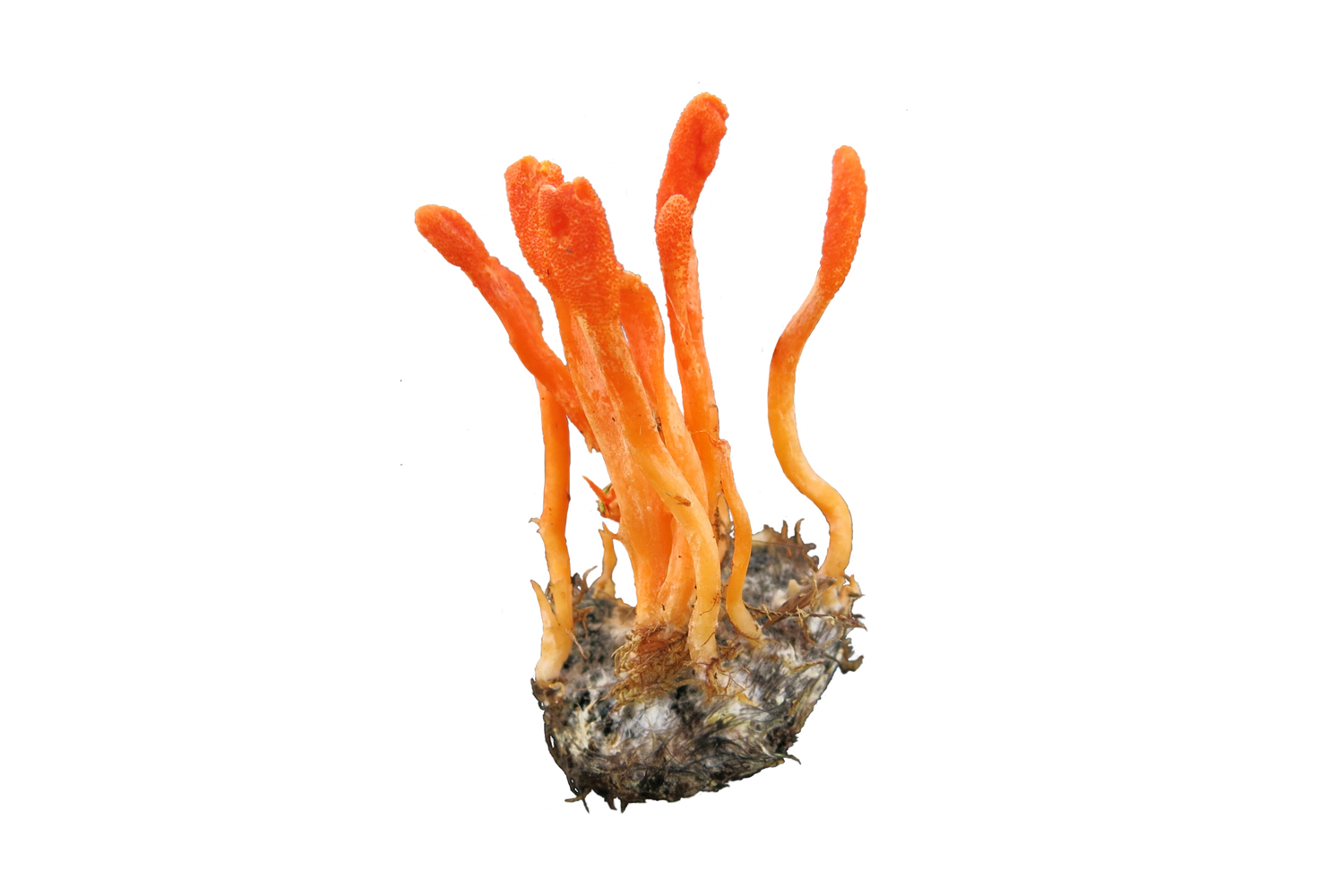There are many natural supplements that will specifically help boost your testosterone production.
Some directly increase your T levels. Others limit or block chemical estrogens that lower testosterone. Here is our research-based list of the top testosterone-boosting supplements. They are grouped in three categories: herbal supplements, vitamins and minerals, and estrogen blockers.
Learn more about how these testosterone-boosting supplements will work for you…
Herbal Testosterone Boosting Supplements
The following herbal supplements have been found to have testosterone boosting properties. Read on to find out more details about each.
- Tribulus Terrestris
- Used in China and India for thousands of years as an aphrodisiac, the supplemental form of Tribulus terrestris increases your body’s level of luteinizing hormone (LH), which encourages testosterone production.
- Avena Sativa
- Avena sativa, the scientific name for oats, contains large amounts of avenocosides, the active component that boosts testosterone. It supports muscle building by releasing bound testosterone and increasing your levels of free testosterone. For best results, get products that offer a 10 to 1 ratio of Avena sativa extract, and take 100-300 mg per day. Split that over 2 to 3 doses per day. After taking for up to 8 weeks, it’s recommended giving your body a break by taking 2 to 4 weeks off.
- Fenugreek
- Here’s another dynamic testosterone booster. Because fenugreek passes through your liver before increasing your T levels, it allows your body to balance and regulate testosterone. This makes it ideal for supporting muscle building. For best results, take 500-2000 mg of fenugreek per day along with Tribulus terrestris . But don’t consume more than 2,000 mg per day combined since they work similarly.
- Ginseng
- Ginseng is an ancient herb that has several benefits. It’s an effective aphrodisiac, helps remedy erectile dysfunction, and enhances libido by stimulating the hypothalamus, that part of the brain which creates sex hormones such as testosterone. Ginseng also supports your immune system and boosts energy levels significantly while improving strength. Athletes use it to make more effective use of oxygen, decrease their recovery time, and reduce muscle stress.
- Horny Goat Weed
- You may chuckle at the name – Horny Goat Weed – but it’s serious stuff when it comes to benefiting your sexual performance and well-being. Both animal and human research supports its efficacy as an aphrodisiac. Research also demonstrated a significant increase in testosterone production in mice. In addition, Horny Goat Weed has anti-fatigue effects and helps prevent adrenal exhaustion. Yet another benefit is that it increases nitric oxide within our arteries. That’s good because nitric oxide makes the arteries more supple so you can improve oxygen and blood flow in the body. Incidentally, nitric oxide is what gives you that “pump” after weight lifting and, because it increases oxygen in the blood, helps improve athletic performance such as running, biking, etc.
- Longjack (Tongkat Ali)
- Traditionally used as an aphrodisiac and libido booster, Longjack can also be used to stimulate testosterone production. It comes with many other health benefits as well, including increased feelings of well-being, improved joint health, greater recovery from intense exercise, improved immunity, and reductions in body fat.
- Ashwagandha
- Ashwagandha, an ancient Indian herbal remedy, is a testosterone booster backed up by peer-reviewed human research. According to the study in Evidence-Based Complementary and Alternative Medicine , testosterone production increased by 17% in just 90 days. Other studies have shown even higher T production. There’s still more good news about Ashwagandha. It lowers the stress hormone cortisol that reduces testosterone and increases HDL cholesterol (the good stuff). Elevating HDL cholesterol protects the heart and is the direct precursor for all sex hormones, including testosterone. The most powerful form of ashwagandha extract is called KSM-66. Considered the “gold standard” of ashwagandha, it is supported by a significant volume of clinical research and double-blind, placebo-controlled clinical trials documenting its results.
- Saw Palmetto
- Saw palmetto may also help increase testosterone levels by inhibiting up-conversion to dihydrotestosterone. There are about 100 clinical studies on the benefits of saw palmetto. When choosing a saw palmetto supplement, look for an organic supercritical CO2 extract of saw palmetto oil, which is dark green in color. Since saw palmetto is a fat-soluble supplement taking it with eggs will enhance the absorption of its nutrients.
- Astaxanthin
- Used alone or in combination with saw palmetto. Solid research indicates that if you take astaxanthin in combination with saw palmetto, you may experience significant synergistic benefits. A 2009 study published in the Journal of the International Society of Sports Nutrition found that an optimal dose of saw palmetto and astaxanthin decreased both DHT and estrogen, while simultaneously increasing testosterone.
- D-Aspartate
- D-Aspartate is an amino acid that works in the central region of your brain to release luteinizing hormone (LH). LH is a hormone that produces testosterone when it binds to special cells found in your testes. The more LH you have stimulating the testes, the more testosterone your testes make. D-Aspartate is said to increase LH by 33% in just 12 days and increase T levels by as much as 42%.
- Damiana
- Researchers from the University of Mississippi found two active ingredients in Damiana, also known as Tumera diffusa, that indirectly help keep testosterone levels high, pinocembrin and acacetin. At the same time, they also inhibit estrogen in the body.
Vitamins and Minerals for Making Testosterone
These specific vitamins and minerals support your body in its natural ability to produce and maintain testosterone levels.
- Magnesium
- Supplementing with magnesium offers you many benefits along with raising testosterone levels and building muscle. When magnesium levels are low, you can be assured your T levels are low, too. Magnesium is excellent for promoting sleep, which is highly important for supporting testosterone, and for producing enzymes that enable vitamin D3 to help with calcium absorption and bone building. To test your magnesium levels, do a red blood test. When supplementing take 500 mg of high-quality magnesium bound with taurate, ororate, glycinate, or fumarate to support hormone levels and athletic performance.
- Zinc
- Zinc is an essential mineral for producing testosterone. But according to the National Health and Nutrition Examination Survey, nearly half of adults over 60 have low zinc levels because of insufficient intake. Zinc supplementation for only six weeks saw significant improvement in boosting testosterone levels. When supplementing, the dosage should not exceed 40 milligrams a day as overdosing may cause nausea or interfere with your body’s absorption of essential minerals, such as copper.
- Vitamin D3
- Vitamin D3, called a vitamin, but actually a hormone, is also important for increasing your testosterone level, improving your libido, and helping maintain semen quality and sperm count. When your body has an abundance of vitamin D3, it tells your genes to increase muscle strength and growth. Supplementing with D3 helps maximize this potential. Since many men are deficient in this cholesterol-derived steroid hormone, it’s highly recommended you have your vitamin D3 levels tested. Use the 25(OH)D or a 25-hydroxyvitamin D test. According to New York Times best-selling author Dr. Joseph Mercola, the optimum level of vitamin D3 for men is around 50 to 70 mg/ml. You can take 8,000 IUs of vitamin D3 a day, or more, as long as you reach and maintain a blood level of at least 40 ng/ml.
- DHEA (Dehydroepiandrosterone)
- Although DHEA is actually a hormone and not a vitamin or mineral, it’s included in this section because it not only improves the production of testosterone, but benefits the production of numerous other hormones in your body. As men age, natural DHEA levels steadily decrease. Since DHEA is needed for the production of testosterone, less natural supply could mean less raw materials for your testes to work with, so supplementing with DHEA makes good sense. A recommended dose is extremely small as it is a powerful hormone booster, so only take 25 – 50 mg of DHEA daily.NOTE : Ask your doctor to check for the DHEA level in your body when he orders a blood test for testosterone. If your DHEA level is too low, then you know supplementation is a good idea. If you take DHEA, it’s a good idea to have your levels checked regularly through saliva testing, which costs less than the blood test. Saliva test kits can be obtained at Amazon.com.
Estrogen Blocking Supplements
The third leg of the supplement protocol is to rid your body of some of the excess estrogen that can be a problem. With less estrogen in your body, you’ll free up more testosterone your body can generate and absorb. The supplements below block estrogen.
- Stinging Nettle Root
- Stinging nettle root contains 12% protein by weight and is fairly high in zinc and other nutrients. But the root is excellent for increasing testosterone. As already covered earlier, much of the testosterone created in your body ends up bound to sex hormone binding globulin (SHBG) which blocks the amount of free testosterone available for use. If you have too much estrogen, it increases the amount of SHBG. Stinging nettle root includes extracts known as lignans which bind with SHBG, making it unable to lock up testosterone. This releases more free testosterone in your body — restoring your youthful energy, sex drive, muscle strength, and manhood. You should take 1,000 to 1,200 milligrams of nettle root daily.
- Chrysin
- Chrysin is a flavonoid occurring naturally in honey and bee propolis and in plants such as the passionflower, silver linden, and some geranium species. In vitro research indicates chrysin reduces the conversion of testosterone into estrogen. What this means is that your body reduces its level of estrogen and makes available more free testosterone. When combined with an extract of black pepper called bioperine — which helps transport chrysin into the bloodstream — chrysin may reduce estrogen levels and increase free testosterone levels in as little as one month. Take 150 to 200 mg of chrysin with 5 – 7.5 mg. of bioperine daily.
As you can see, there are many ways to supplement your diet and increase your testosterone levels – in a safe and natural way.
By “natural,” we mean making some long-term changes to your diet and lifestyle – as well as a personalized prescription of pharmaceutical-grade vitamin and herbal supplements to boost testosterone while improving your overall health. The power to make positive change and fight Low T is in your hands!










